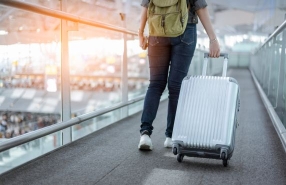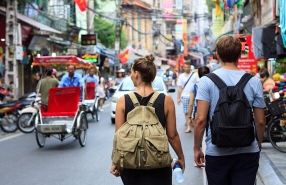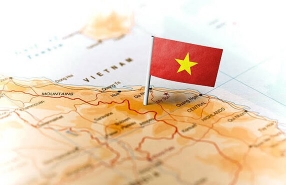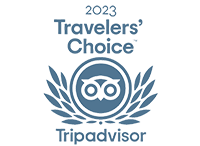Are Vaccinations Necessary For Traveling To Cambodia ?

Can you travel to Cambodia without vaccinations ? The good news is yes—you can. For most travelers, Cambodia doesn’t require any mandatory vaccines to enter, unless you're arriving from a yellow fever–risk country. Even if a vaccination certificate isn’t always required, staying healthy during your trip is very important. To enjoy your adventure to the fullest, you should protect yourself. This article will explain what you need to know about travel vaccinations for Cambodia, common diseases in Cambodia, and tips to help make your trip safe and memorable.
What vaccines do you need for travel to Cambodia ?
- I. Why Are Vaccinations for Cambodia Important?
- II. Entry Requirements for Vaccinations in Cambodia
- III. Recommended Travel Vaccinations for Cambodia
- IV. How to Get Vaccinated for travelling to Cambodia ?
- V. What are the health risks in Cambodia ?
- VI. How to avoid getting sick in Cambodia ? Health Tips When Traveling to Cambodia
I. Why Are Vaccinations for Cambodia Important?
Getting the right vaccinations for Cambodia isn’t just about following travel advice—it’s about staying safe and healthy while you explore the country. Cambodia has a tropical climate, different hygiene standards, and some diseases that may not be common in your home country. Travel vaccines for Cambodia help protect you against serious illnesses like typhoid, hepatitis, or Japanese encephalitis that could easily disrupt your trip. More importantly, being vaccinated also prevents the spread of disease to local communities.
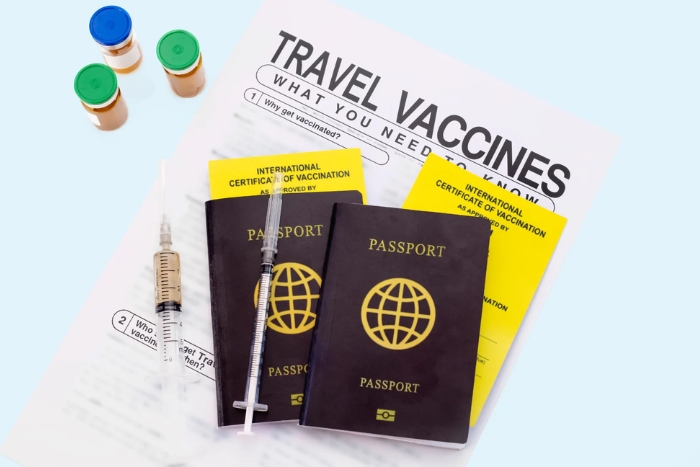
Cambodia attracts millions of travelers every year with its cultural wonders like Angkor Wat, unspoiled nature, and unique cuisine. But rural areas and less-developed sanitation systems can pose health risks if you’re not prepared. That’s why getting vaccinated before your trip is one of the smartest ways to protect yourself and make the most of your journey.
II. Entry Requirements for Vaccinations in Cambodia
What vaccines do you need for travel to Cambodia ? According to information from the CDC and NHS Fit for Travel, Cambodia does not require mandatory vaccinations for most travelers. However, there is one important exception:
1. Yellow Fever Vaccine
Who needs it ? Travelers aged 1 year and older who are arriving from, or have transited for more than 12 hours through, countries with a risk of yellow fever transmission (such as parts of Africa or South America) must present proof of vaccination upon entry into Cambodia.
What documents are required ? You’ll need to carry an International Certificate of Vaccination or Prophylaxis as official proof. This certificate should be shown at customs if requested.
Not needed if traveling from Vietnam: If you’re flying directly from Vietnam or any country without yellow fever risk, this requirement does not apply. Still, it’s wise to check current Cambodia travel vaccinations guidelines before departure.
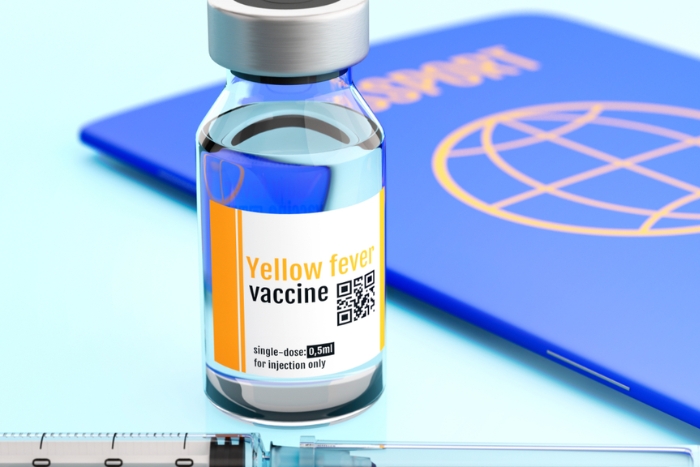
2. No COVID-19 Vaccine Requirements
As of 2025, Cambodia has removed all COVID-19-related entry requirements, including testing, vaccination certificates, or quarantine, per the Ministry of Foreign Affairs and International Cooperation of Cambodia. This simplifies entry, though it’s wise to confirm with your airline for any additional policies.
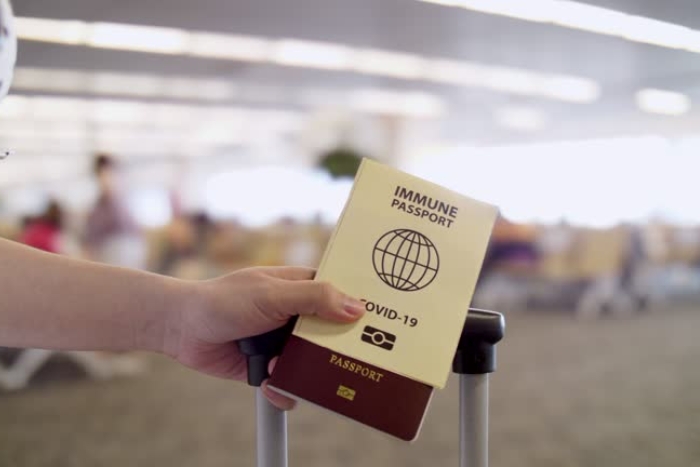
III. Recommended Travel Vaccinations for Cambodia
While not required, health authorities like the CDC and NHS strongly recommend several travel vaccines for Cambodia to help protect you during your trip. Here’s what you should consider:
1. Routine Vaccinations
Ensure you’re current on routine vaccines:
MMR (Measles, Mumps, Rubella): Crucial due to global measles outbreaks.
DTP (Diphtheria, Tetanus, Pertussis): Shields against serious infections in crowded settings.
Polio: Complete the series to avoid risks.
Seasonal Flu: Advisable if traveling during flu season.
2. Travel-Specific Vaccinations
Hepatitis A: Spread via contaminated food or water, it’s common in Cambodia. Recommended for all travelers aged 1+; kids aged 6-11 months can get one dose before travel. One dose offers short-term protection, while two provide long-term immunity.
Typhoid: Transmitted through food and water, especially in rural areas or local eateries. Advised for most travelers, particularly those staying with locals or eating street food. Available as an injection (2-year protection) or oral vaccine (5-year protection).
Hepatitis B: Spread through blood or sexual contact, it’s recommended for travelers under 60; those over 60 should consult a doctor.
Japanese Encephalitis: A mosquito-borne illness prevalent in rural areas. Suggested for stays over a month or outdoor activities like camping. Requires two doses, one month apart.
Rabies: Transmitted by animal bites, especially dogs. Ideal for those in rural areas, working with animals, or with limited medical access. Pre-exposure shots simplify treatment but don’t replace post-exposure care.
Other Vaccines: Consider cholera for high-risk areas; chikungunya has no widely available vaccine, so focus on mosquito prevention.
IV. How to Get Vaccinated for travelling to Cambodia ?
To get your travel vaccinations for Cambodia, it’s best to plan ahead. Visit a doctor or travel clinic at least 6–8 weeks before your trip, especially if you may need multiple doses. Be sure to share your full travel details—including rural or urban destinations, trip duration, and your medical history—so the provider can recommend the right vaccines. Trusted resources like the CDC or NHS Fit for Travel offer helpful guidance.
In Vietnam, major hospitals and centers like the Pasteur Institute provide travel vaccinations. Costs typically range from a few hundred thousand to a few million VND, depending on the vaccine. Don’t forget to check whether your travel or health insurance covers these expenses.
V. What are the health risks in Cambodia ?
There are several health risks in Cambodia, particularly in rural or less sanitary areas. Here are the most prevalent:
1. Mosquito-Borne Diseases
When is the mosquito season in Cambodia ? In Cambodia, mosquito-borne illnesses are most common during the rainy season from May to October, when stagnant water creates ideal breeding grounds.
Malaria: Found mainly in rural and forested regions, it’s rare in Phnom Penh or Siem Reap. Prevention includes antimalarial drugs (see below) and mosquito protection.
Dengue Fever: Common in urban and rural areas, peaking in the rainy season. No vaccine is widely available, so avoid bites with repellent and clothing.
Chikungunya: Another mosquito-borne illness with no common vaccine. Prevention mirrors dengue strategies.

2. Food and Water-Borne Diseases
Traveler’s Diarrhea: Affects up to 50% of travelers due to contaminated food or water. Stick to bottled or boiled water and well-cooked meals.
Hepatitis A: Cambodia Vaccinations and careful food choices prevent this widespread risk.
3. Other Risks
Air Pollution: Poor air quality in Phnom Penh, especially in the dry season, may require a mask for sensitive travelers.
Traffic Accidents: Chaotic traffic calls for caution, especially if walking or riding a motorbike.
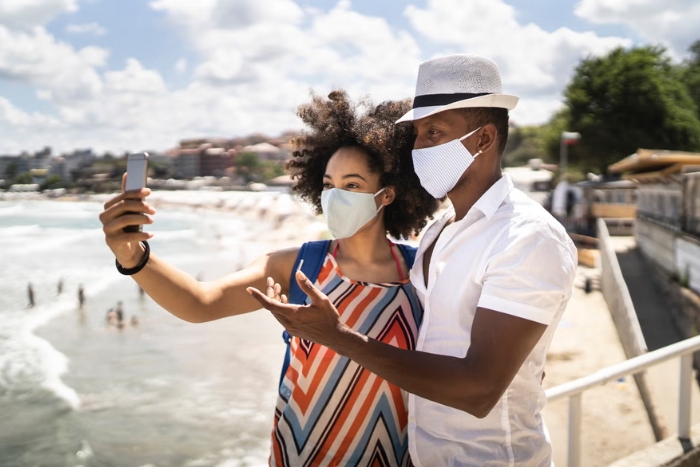
VI. How to avoid getting sick in Cambodia ? Health Tips When Traveling to Cambodia
Avoid Mosquito Bites: Apply DEET repellent, wear long sleeves and pants, and use a mosquito net. Avoid dusk and dawn outings when mosquitoes are active.
Safe Eating and Drinking: Drink only bottled or boiled water, skip ice, and avoid raw vegetables or unpeeled fruits. Opt for busy, clean eateries.
Hand Hygiene: Wash hands often with soap or use sanitizer; carry antibacterial wipes.
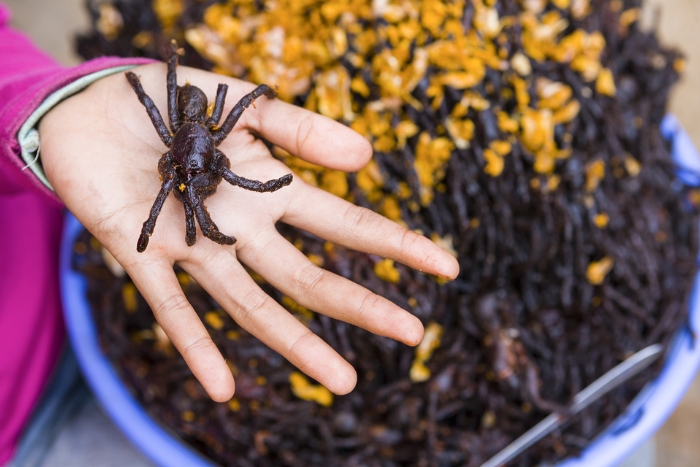
If You Get Sick: Seek care at international hospitals in Phnom Penh or Siem Reap. The main emergency number in Cambodia is 119. For more specific medical assistance, you can contact the Royal Phnom Penh Hospital at +855 (0)23-991000 Travel insurance covering medical costs and evacuation is a must.
Traveling to Cambodia isn’t just about ticking off famous sites like Angkor Wat—it’s about immersing yourself in a culture that’s rich, complex, and sometimes unpredictable. To truly enjoy your trip, staying healthy matters. While Cambodia doesn’t require most travelers to be vaccinated, travel vaccinations for Cambodia such as hepatitis A, typhoid, and malaria protection can make a real difference, especially if you're visiting rural areas. Don’t wait until the last minute—see a doctor early, share your travel plans, and get advice tailored to your route. A reliable travel agency in Cambodia like Autour Asia can also help you prepare, offering local insight that goes beyond guidebooks. Good planning doesn’t ruin spontaneity—it gives you the freedom to enjoy every moment, worry-free.
>>> Places To Avoid In Cambodia For Tourists
>>> What To Pack For Cambodia ?
>>> Cambodia Travel Guide
>>> Cambodia Tour 2 weeks
>>> Cambodia Tours
When planning your trip, it’s important to consider recommended vaccinations for Cambodia. While no vaccines are required for most travelers, the yellow fever vaccine is mandatory if you’re arriving from a country with risk of transmission. Health authorities like the CDC and NHS advise vaccines such as hepatitis A, typhoid, hepatitis B, and Japanese encephalitis, especially if you plan to explore rural areas or travel during the rainy season. Protection against mosquito-borne diseases like dengue and chikungunya is also essential. Consulting a doctor before departure ensures you’re properly protected and ready for a safe, healthy journey.
One of the biggest health risks in Cambodia today comes from noncommunicable diseases (NCDs), which have overtaken infectious diseases as the leading health concern. Conditions such as cardiovascular disease, diabetes, respiratory illnesses, and various types of cancer now account for the majority of the disease burden across the country. Rapid urbanization, changes in lifestyle, and limited access to early diagnosis and treatment contribute to the growing prevalence of these issues. In addition, Cambodia is also facing rising concerns related to road traffic injuries and mental health, especially among young people. These health challenges require both national attention and awareness from travelers.
I highly recommend choosing a 2 weeks Vietnam and Cambodia itinerary. Begin your adventure in Vietnam with the cultural richness of Hanoi, a cruise through the stunning limestone landscapes of Halong Bay, and a journey into the lush waterways of the Mekong Delta. After exploring the north and south of Vietnam, head to Cambodia to uncover the ancient wonders of Angkor Wat in Siem Reap. End your trip in Phnom Penh, where history and modern life meet in the lively capital. This itinerary offers a perfect blend of natural beauty, cultural depth, and unforgettable experiences.
Related travel guide
Other similar articles
CUSTOMIZABLE BY LOCAL EXPERTS
Personalized trip at the original price!
REFUND GUARANTEE
We believe in our work and promise to give you money back.
GOOD PRICE / QUALITY
95% satisfied more than expected!
24/7 LOCAL SUPPORT
We are always available online to provide assistance at any time.
Most read articles
Autour Asia is highly recommended on
Embracing the mission of "Satisfied more than expected" and providing authentic experiences, we have received numerous recommendations on reputable travel forums:












